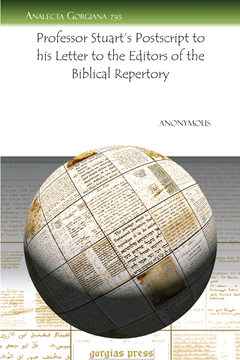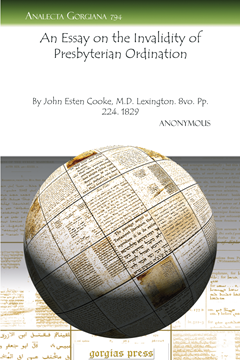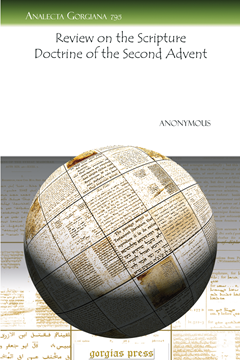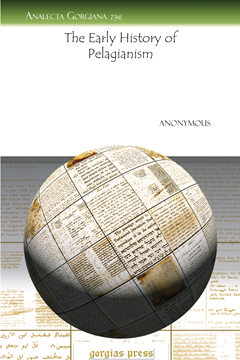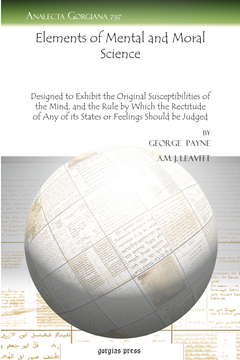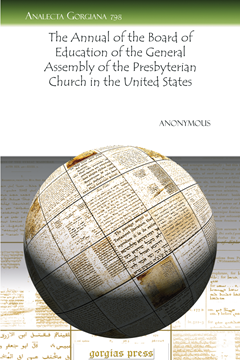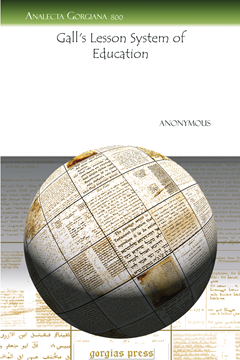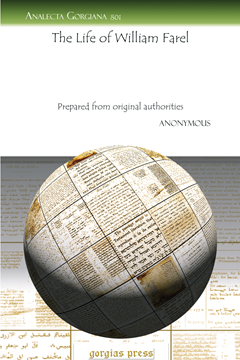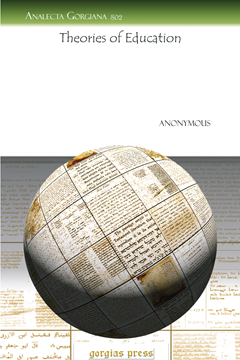The Church Establishment of England
By Anonymous
Series: Analecta Gorgiana 792
ISBN: 978-1-61143-170-4
The author reviews a pamphlet that criticizes the connection between church and state in England. He attacks the bias inherent in the system, the inefficiency of it, and its inability to fulfill its churchly duties.
$36.00 (USD) $21.60 (USD)
Professor Stuart’s Postscript to his Letter to the Editors of the Biblical Repertory
By Anonymous
Series: Analecta Gorgiana 793
ISBN: 978-1-61143-171-1
The article responds to a postscript from a letter to the editor on the journal’s position on loans by the American Education Society. The editor counters the writer’s claims and defends the journal’s prior position.
$36.00 (USD) $21.60 (USD)
An Essay on the Invalidity of Presbyterian Ordination
By John Esten Cooke, M.D. Lexington. 8vo. Pp. 224. 1829
By Anonymous
Series: Analecta Gorgiana 794
ISBN: 978-1-61143-172-8
The article reviews and critiques an essay that attacks Presbyterian ordination. The reviewer points to logical and textual flaws in the argument, indicating the author’s incompetence.
$40.00 (USD) $24.00 (USD)
Review on the Scripture Doctrine of the Second Advent
By Anonymous
Series: Analecta Gorgiana 795
ISBN: 978-1-61143-173-5
The article reviews a text on the Second Advent. The reviewer compares two perspectives on the scriptural descriptions of the Second Coming: either it will literally look as is depicted or the prophecies are allegories.
$37.00 (USD) $22.20 (USD)
The Early History of Pelagianism
By Anonymous
Series: Analecta Gorgiana 796
ISBN: 978-1-61143-174-2
The author presents the history of Pelagius and his position against original sin. He reviews the positions for and against the doctrine of original sin, concluding that original sin cannot be proven true.
$39.00 (USD) $23.40 (USD)
Elements of Mental and Moral Science
Designed to Exhibit the Original Susceptibilities of the Mind, and the Rule by Which the Rectitude of Any of its States or Feelings Should be Judged
Series: Analecta Gorgiana 797
ISBN: 978-1-61143-175-9
The article reviews a set of texts on mental philosophy. It reviews the author’s assessments of various sources and the aspects of the mind. The reviewer takes issue with certain philosophers’ beliefs.
$37.00 (USD) $22.20 (USD)
The Annual of the Board of Education of the General Assembly of the Presbyterian Church in the Unite
By Anonymous
Series: Analecta Gorgiana 798
ISBN: 978-1-61143-176-6
The reviewer praises an annual, comprised of a series of articles, as valuable for students entering the ministry. The author advocates modesty, hard work and piety amongst other virtues.
$35.00 (USD) $21.00 (USD)
Gall's Lesson System of Education
By Anonymous
Series: Analecta Gorgiana 800
ISBN: 978-1-61143-178-0
The author reviews a text which proposes a “Lesson System” to replace the current ineffective Sabbath school model. The new system fixes many of the old system’s errors and has been successfully implemented in a few places.
$37.00 (USD) $22.20 (USD)
The Life of William Farel
Prepared from original authorities
By Anonymous
Series: Analecta Gorgiana 801
ISBN: 978-1-61143-179-7
The reviewer examines a biography of Protestant Reformer William Farel. The book describes Farel’s departure from Catholicism and contributions to the efforts of Swiss Reformation, Zuingle in particular. His trails and successes are described.
$35.00 (USD) $21.00 (USD)
Theories of Education
By Anonymous
Series: Analecta Gorgiana 802
ISBN: 978-1-61143-180-3
The author attacks practices common in newer forms of education. He generally calls for a more conservative, less experimental, approach which emphasizes deep general knowledge. No formal method is offered to replace the broken system.
$34.00 (USD) $20.40 (USD)

